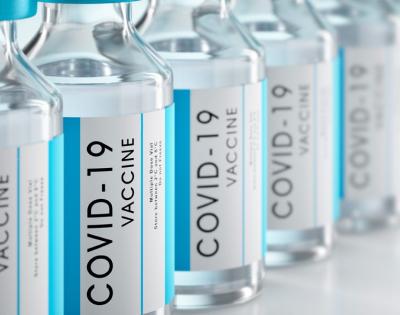Health + Wellness
April 30, 2021
In light of the pandemic’s global impact, Case Western Reserve University (CWRU) placed the COVID-19 coronavirus pandemic at the forefront of its research focus. This initiative, led by research faculty, was organized and facilitated by the critical work of faculty at CWRU and across our…

April 29, 2021
While working as a special agent in counterintelligence for the U.S. Air Force (USAF), Stormy Stan changed course to make a greater impact on people’s lives. She decided to pursue medicine and enrolled in the School of Medicine’s PRIME (Post-baccalaureate Readiness Instruction for bioMedical…

April 29, 2021
With a focus on diversity, inclusiveness and equity, the 2021 Education Retreat, Diversity and Inclusion in Education, hosted over 300 attendees from Case Western Reserve University (CWRU) School of Medicine, School of Nursing and the four affiliate hospitals: Cleveland Clinic, MetroHealth,…

April 29, 2021
by Zoe Perrier, graduate student in the Department of Psychological Sciences, and Adrianne Fletcher, assistant professor and assistant dean for diversity and inclusion at the Jack, Joseph and Morton Mandel School of Applied Social Sciences Regarding hesitancy toward the COVID-19 vaccine, about…

April 27, 2021
Researchers collaborate on genetic study of SARS-CoV-2 mutations Since the start of the COVID-19 pandemic, mutations of SARS-CoV-2—the virus that causes COVID-19—have spread to the U.S. and a host of other countries worldwide. Recent studies suggest that current COVID-19 variants are up to 70%…

April 27, 2021
Novel small molecule technology reverses life-threatening opioid-induced respiratory depression without diminishing pain relief Case Western Reserve University and Atelerix Life Sciences Inc., a Charlottesville, Virginia-based biotechnology company, have signed a two-year option to license a novel…
April 26, 2021
The COVID-19 pandemic has increased the need for telehealth services for both healthcare providers and patients, and faculty at the Frances Payne Bolton School of Nursing at Case Western Reserve University have developed four online modules to reinforce nurses' core competencies in…
April 26, 2021
Tina Lining Championing diversity within Case Western Reserve University’s School of Medicine is an essential part of its vision to promote an inclusive culture working to eradicate health disparities in Cleveland and across the world. To uphold and strengthen these objectives, the…
April 22, 2021
A new book sheds light on 50 innovative nurses who had significant impact on health science and nursing practice. Written by two nurses and Case Western Reserve University alumni, Mary Beth Modic, DNP, and Joyce J. Fitzpatrick, PhD, Luminaries of the Past: Stories of Fifty Extraordinary Nurses…
April 20, 2021
Outlet: Crain's Cleveland Business

